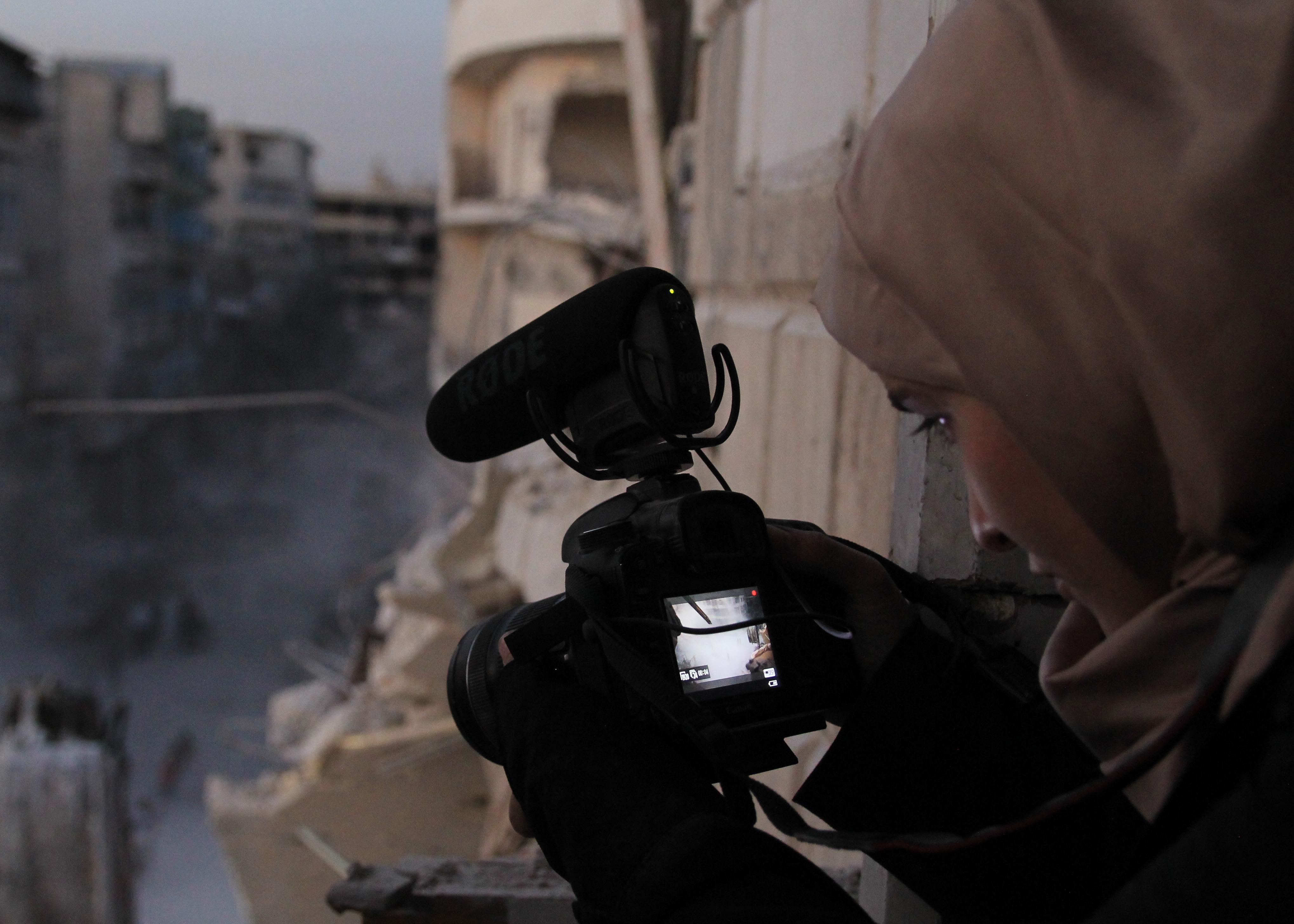
Aidy Bryant, Chicago’s Columbia College graduate and “Saturday Night Live” cast member, is the star of Hulu’s new series “Shrill,” released March 15th, produced by Elizabeth Banks. (SXSW Photo).
Aidy Bryant’s new Hulu series “Shrill” drops today (March 15th). To promote it, Chicago’s Columbia College alumnus Aidy Bryant, her producer Elizabeth Banks (“30 Rock,” “The Hunger Games”), author Lindy West (“Notes from a Loud Woman”), writer Ally Rushfield, and co-star Lolly Adefope were in Austin at a SXSW screening of the first two episodes of “Shrill.”
There are few comedy frontiers left for writers. Jokes about ethnic groups are out and, (other than President Trump), making fun of the handicapped is verboten. Midgets, once comic fodder, are now “Little People.”
But fat people and old people are still fair game.
With Ms. Bryant as the lead, this serio-comic series focuses on how overweight people cope with the constant barrage of negative remarks and actions they are subjected to in real life. But it’s not played solely for laughs.The “Shrill” material is both funny and touching.
It helps that the main character’s Annie’s mother is played by comic pro Julia Sweeney (after 18 years away from performing) and that her sickly father is played by Daniel Stern, who has been acting since the age of 17 (45 years). [Stern first earned kudos as Cyril in “Breaking Away” (1979) and in Barry Levinson’s“Diner” (1982)].

Elizabeth Banks (“30 Rock,” “The Hunger Games”) directs a remark to the author of the “Shrill” source material, Lindy West.(Photo by Connie Wilson).
Special praise should go to Annie’s (Aidy Bryant’s) best friend, played by Lolly Adefope, who was great in the two episodes we saw. Aidy, herself, brings a vulnerability and poignancy to the role that reminds of Melissa McCarthy in her Oscar-nominated turn this year in “Can You Ever Forgive Me.” Annie (Aidy) has the likeability to make you want to root for her; her visual reactions to indignities like her boyfriend asking her to sneak out of his apartment the back way to avoid meeting his roommate brothers: heartbreaking, but all too human.
The opening episode cuts right to the chase. Aidy becomes pregnant by her sometimes boyfriend. She has been using the Morning After pill, but the pharmacist failed to tell her that the pill would be ineffective if the woman weighed more than 175 pounds. (“Oh, yeah…that guy,” says a co-worker at the pharmacy. “He’s very bad at his job.”)
The write-up in the SXSW program says: “From Executive Producer Lorne Michaels and Elizabeth Banks comes Shrill, a comedy series starring Aidy Bryant (Saturday Night Live) as Annie, a fat young woman who wants to change her life—but not her body. Annie is trying to start her career as a journalist while juggling bad boyfriends, a sick parent, and a perfectionist boss.”

(L to R) Janelle Riley, Editor of “Variety;” Aidy Bryant (“Saturday Night Live”); Writer Ally Brushfield; Producer Elizabeth Banks, and author Lindy West at the Q&A following “Shrill.”
Following the screening of Episodes #1 and #2 from “Shrill,” Janelle Riley, editor of “Variety,” moderated a panel consisting of the author of the source material, Lindy West, whose book of essays “Notes from a Loud Woman” served as the inspiration for the series;Elizabeth Banks, actress and producer, was onstage with writer Ally Rushfield and Aidy. The first question was, “What was your first job?”
The author responsible for the concept (Lindy West) admitted that she had not had much of a goal in life of becoming a writer. “I wasn’t one of those who wanted to be a writer. My first real writing job was for “Where” magazine in Seattle.” She described the task of trying to make the Space Needle fascinating in every issue as difficult.
Aidy Bryant, who married her boyfriend of ten years on April 28, 2018 (she met him when they both were part of Annoyance Theater in Chicago), described her first job as “musical improvisation in Indiana and Ohio, which nobody wanted to hear.”
The writer in the group, Alexandra (Allie) Rushfield said her first job was, “A video store, because I’m middle aged.” She also admitted to a stint with the Groundlings Comedy troupe.
Elizabeth Banks, known to audiences for her role as Effie Trinkett in “The Hunger Games” and for her continuing role as Alec Baldwin’s girlfriend on “Thirty Rock,” has a production company with her husband, Max Handelman. Her first-job answer was, “I was a latch-key kid and my first job was when I played Pontius Pilate in ‘Jesus Christ, Superstar.’” She then regaled us with a few bars from her big musical number.

Elizabeth Banks (L) and Lindy West (“Notes from A Loud Woman”) during the Q&A after the new Hulu series “Shrill.” (Photo by Connie Wilson).
Moderator Janelle Riley, mentioning that “Notes from a Loud Woman” was “a great collection of essays,” wanted to know how or when they were envisioned as a series. Elizabeth Banks answered that it was “pretty quickly after the book came out and there were a lot of option meetings.” We were told that Aidy was actually the first person considered for the role.
Aidy (Bryant) said, “It was the first time I ever saw myself in a piece solo. They let me be involved in the writing and producing, which was huge for me.”
The big question many of us had was this: How much personal experience did you bring to the character?
The cast noted that they were initially referring to the main character as “Lindy” (the author’s name) but changed the character’s name to Annie, since it is not a bio-pic. One noted that the series was “the child of many mothers.”
The cast members railed against Twitter (“Please all quit Twitter and put it out of business and make the world a better place.”) where random strangers gather to hurl insults. “What a joy to be called a fat disgusting pig constantly,” said Aidy Bryant. She shared that an incident in the first episode actually happened to her. A thin, beautiful trainer grabs her wrist and comments on what a small frame she has, saying, “There’s a thin person inside of you trying to get out.”
In the episode, Aidy laughs and responds, “Well, let’s hope she’s okay in there.”
She also shared that, when she has played Sarah Huckabee Sanders in skits on “Saturday Night Live” half of the viewers who sent messages called her “a fat, disgusting pig” and half said, “Aidy shouldn’t be playing this strong, independent woman.”
All agreed: “People are not used to seeing fat people do anything on camera.” (One possible exception to this might be the character on “This Is Us,” Kate Pearson, played by Chrissy Metz). Elizabeth Banks said, “I think this is very revolutionary. I think our entire cast and crew wanted to empower women and get rid of the people who are always telling you you aren’t good enough.”
Lindy West, the author, said, “You never see fat people doing anything except being fat. The world intrudes on you and tells you constantly that you aren’t living up to its standards. Society reminds us all day, every day, that if you’re a fat woman, there’s something wrong with you.”
One aspect that the second episode touched on was the “very complicated relationship with your mother and her body. That represents a lot of love and pain for many women.” I can certainly attest to this.
I had a mother who harped about my weight gain after I gave birth to my son. She never missed an opportunity to insert a diet or recipe reminder in her letters. Then, after I fasted for two full months on liquid protein and lost 72 pounds, and showed up at home at exactly the same weight I had been when I graduated from high school, she never made a single positive comment. I have a good friend (and former college roommate, Pam) who has told me how uncomfortable it was for her to be around and hear her mother say things like, “Why can’t you be thin like Pam?” or, on other occasions, “Why can’t you be thin like your sister?” My mother, like Lindy West’s, is of Norwegian (and Dutch) heritage. Is that a clue?
Said writer Allie Rushfield, “The deal in the writing room is that we would find the universal themes…that period in one’s late teens and early twenties when it’s all about appearance.” Aidy, the series lead, said, “I remembered how much I hated my own guts then. I felt sad for myself—for all the time I wasted when I was sold the bill of goods about how I was worthless unless I was thin.”
Added the writers (Alexandra Rushfield, Lindy West, Aidy Bryant): “I feel like the entire world is shifting, too.”
Let’s hope so. In the meantime, I ordered up Hulu for my husband’s March 21st birthday, primarily because of this series—[although, let’s face it, I’ve not been able to see Elisabeth Moss’s “The Handmaid’s Tale,” either, and obviously that is required viewing in the age of Trump].
So, how much did I like “Shrill”? At least $72 worth, minimum, and that’s probably on the low side (depending on whether you opt out of the commercials or not).
I also want to thank the publicist who got me in and let me sit in the Reserved seating area. Thank you very much. I never did gain admission to “NOS4A2,” despite writing repeatedly and once interviewing Joe Hill. That’s all I’m going to be writing about that other new series for a loooong time.






 One producer was asked about his fears when doing the remake, “Well, you know what they say about filming with children and animals. (laughter) Also, dogs train well. Cats—not so much. But we had such great child actors.”
One producer was asked about his fears when doing the remake, “Well, you know what they say about filming with children and animals. (laughter) Also, dogs train well. Cats—not so much. But we had such great child actors.”

























 Photo of Waad al-Kateab, documenting the violence in Aleppo, Syria (SXSW Press Still)
Photo of Waad al-Kateab, documenting the violence in Aleppo, Syria (SXSW Press Still)